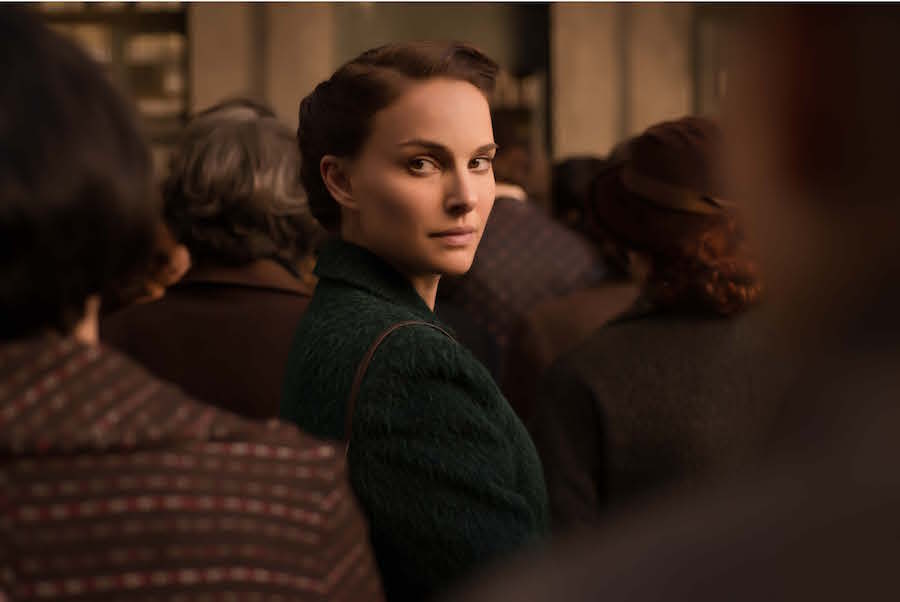‘A Tale of Love and Darkness’ Remember when Scarlett Johansson directed a movie? You probably don’t. The same year she released a derided (but not bad) album of Tom Waits songs, the actress and perpetual cover girl made a short film for the 2008 omnibus movie “New York, I Love You.” For whatever reason, the producers decided not to include it. Much chuckling commenced, as though its badness was a forgone conclusion, and society tacitly perpetuated the idea that actors — especially attractive female actors — should know their place. The bar is set impossibly high for someone like Scarlett Johansson, and for someone like her “The Other Boleyn Girl” co-star Natalie Portman. Perhaps that’s why Portman made her directorial debut deep in the shadows. “A Tale of Love and Darkness” is not just small and decidedly un-mainstream; it was made in Israel, mostly in Hebrew. That way TMZ won’t hear about it and command its followers to enter the theater with knives drawn. And as it happens, it’s a flawed but worthwhile effort — a deeply personal project, but not one so delicate that it’s easily mocked. Portman gave herself a hefty task, too: Adapted from Amos Oz’s novel, it forces her to pound a 544 quasi-memoir spanning the early years of Israel into a 98-minute film. The book isn’t short on incident, but it’s the kind of true tale where the major occurrences — including war and bloodshed — tend to happen in the background while everyday life plods along mundanely. In other words, it’s not so easily turned into a film. But Portman charges through, selecting moments both big and small, and creating arresting imagery at every turn — all while directing herself in a role that calls on her to suffer, but not beautifully. Her film begins with Oz as an old man remembering his mother, Fania (Natalie Portman), who died when she was 38. The rest of it is a movie-long flashback, showing young Oz (Amir Tessler) as a bright but quiet mama’s boy. The movie spans 1945 to 1952, capturing the early excitement of the new Israeli state, followed by a wave of violence. But most of it is a steady and sometimes aimless procession of little moments and stray details, some mundane (sensual shots of Borscht being prepared), some odd (a childless couple who rent Oz out to pose as their own), some harrowing (the family open their first floor apartment up to several neighbors afraid of cross fire). RELATED: Interview: Craig Robinson on “Morris from America,” going serious and Pokemon Go “A Tale of Love and Darkness” isn’t always subtle; the one, brief time she addresses Israeli-Palestinian strife is basically the art house version of “The Fox and the Hound.” But it can be so subtle, its episodes so minor, that it can seem to move in slow-motion. Even as Oz’s homeland erupts in bloodshed and, soon thereafter, his mom succumbs to depression, the movie feels like it has no end in sight — just a collection of stories and details, one after another. In the first half, she gets away with it. Fania has a habit of telling her son stories, some of them upsetting, like one about a mother who tries to visit her daughter, who was adopted by another couple, only for her to spurn her, calling her a “whore.” There’s a nesting doll style to the structure, which includes flashbacks within the other, movie-spanning flashback. These stop midway, and for a good reason: Fania is too ill to spin off tales. We’re supposed to feel their absence. But it’s still a grueling slog to the finishing line. Portman compensates for this in another way: She makes her film feel like a dream. Every shot looks a few shades too dark, even when they’re outside, as though forcing the viewer into a sleepy state. She straps on severe yellow and blue filters, depending on the scene. It’s a beautiful movie, with no wasted shot, and it’s clear she imagined Oz’s book in visual terms, even as she fills the narration track with pithy prose lifted from the source. Still, her film wouldn’t function without lines from the book, which give depth to scenes that would otherwise be shots of Portman looking vaguely melancholy. And yet you can feel Portman’s deep feeling for the source. It’s clear this stems from her love for her heritage and for her own motherhood. It comes from a place of profound connection. Wobbly though “Tale of Love and Darkness” sometimes is, there are worse ways for someone to kick off a new career than by making something that’s both close to home and a genuine artistic challenge.
Director: Natalie Portman
Stars: Amir Tessler, Natalie Portman
Rating: PG-13
3 (out of 5) Globes
‘A Tale of Love and Darkness’ is Natalie Portman’s noble directing debut

Ran Mendelson, Focus World
Follow Matt Prigge on Twitter @mattprigge


















